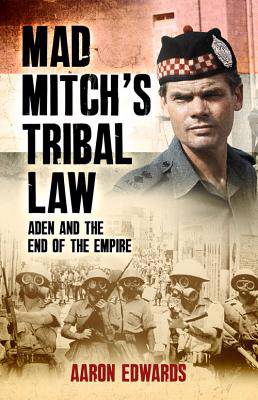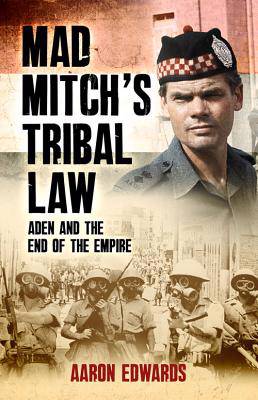
- Afhalen na 1 uur in een winkel met voorraad
- Gratis thuislevering in België vanaf € 30
- Ruim aanbod met 7 miljoen producten
- Afhalen na 1 uur in een winkel met voorraad
- Gratis thuislevering in België vanaf € 30
- Ruim aanbod met 7 miljoen producten
Zoeken
€ 51,45
+ 102 punten
Uitvoering
Omschrijving
Aden, June 20, 1967: two army Land Rovers burn ferociously in the midday sun. The bodies of nine British soldiers litter the road. Bright flames mixed with thick, black smoke bellows above Crater town, a tough Arab neighborhood built on top of a dormant volcano. Surrounded by high rugged peaks and perched on the south-western edge of the Arabian peninsular, it is home to insurgents, terrorists, and gangsters, who establish "no-go areas" against the British-backed Federation government. Crater had come to symbolize Arab nationalist defiance in the face of the world's most powerful empire. Hovering 2,000 ft. above the smouldering destruction, a tiny Scout helicopter surveys the scene. Its passenger is the recently arrived commanding officer of the Argyll and Sutherland Highlanders, Lieutenant-Colonel Colin Mitchell. Soon the world's media would christen him "Mad Mitch" in recognition of his extremely robust and controversial reoccupation of Crater two weeks later. Mad Mitch was truly a man out of his time. Supremely self-confident and debonair, he was an empire builder, not dismantler, and railed against the national malaise he felt had gripped Britain's political establishment. Drawing on a wide array of never-before-seen archival sources and eyewitness testimonies, Mad Mitch's Tribal Law tells the remarkable story of inspiring leadership, loyalty, and betrayal in the final days of British Empire. It is, above all, a shocking account of Britain's forgotten war on terror.
Specificaties
Betrokkenen
- Auteur(s):
- Uitgeverij:
Inhoud
- Aantal bladzijden:
- 272
- Taal:
- Engels
Eigenschappen
- Productcode (EAN):
- 9781780576282
- Verschijningsdatum:
- 1/04/2014
- Uitvoering:
- Hardcover
- Formaat:
- Genaaid
- Afmetingen:
- 155 mm x 236 mm
- Gewicht:
- 589 g

Alleen bij Standaard Boekhandel
+ 102 punten op je klantenkaart van Standaard Boekhandel
Beoordelingen
We publiceren alleen reviews die voldoen aan de voorwaarden voor reviews. Bekijk onze voorwaarden voor reviews.











